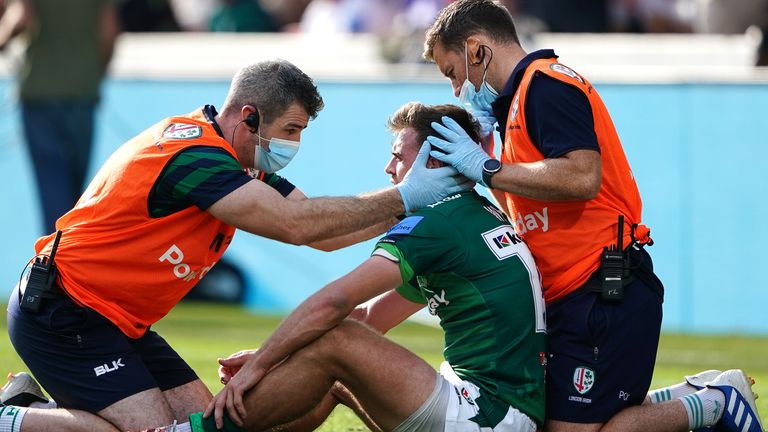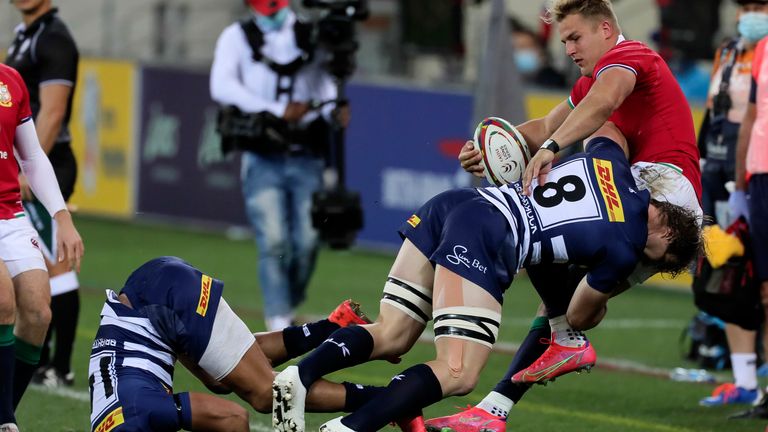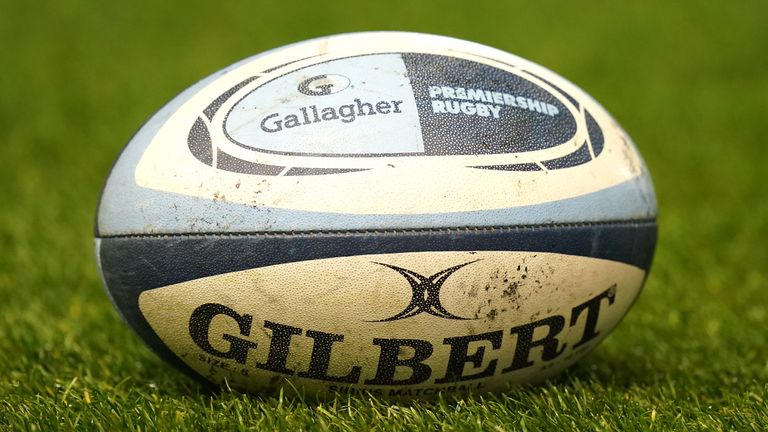World Rugby urged to follow rugby league's lead in adopting enhanced concussion protocols
The Rugby Football League has extended return-to-play protocols which mean players who fail concussion tests in matches or at training must now wait at least 11 days before playing again; that is up from seven days while in elite rugby union the minimum requirement remains at six
Monday 10 January 2022 17:36, UK
World Rugby has been urged to follow the lead of rugby league in the fight to reduce the effect of repeated head knocks.
The Rugby Football League has extended return-to-play protocols which mean players who fail concussion tests in matches or at training must now wait at least 11 days before playing again.
That is up from seven days while in elite rugby union the minimum requirement remains at six.
Progressive Rugby, a lobby group formed to lead the bid to tackle the issue of serious head and brain injury, is hoping the move will prompt officials of the 15-man code to take similar action.
Professor Bill Ribbans, on behalf of Progressive Rugby, said: "We applaud the RFL for addressing the game's graduated return-to-play protocol (GRTP) and sending a strong message that playing a contact sport within a week of suffering a concussion is no longer acceptable.
"To World Rugby, we re-iterate our call for an initial amendment to the GRTP so that players are stood down for a minimum period of 12 days and hope that the RFL's decision may provide the impetus to do so."
Former England forward James Haskell, a prominent member of the group, added on social media: "Well done Rugby league! Turns out you can make instant changes. Come on @WorldRugby.
"Times a ticking. If you want to put me in charge I will show you how to change it all in a few days."
In July 2021, the Rugby Football Union, Premiership Rugby and the Rugby Players' Association launched an action plan aimed at reducing head impacts and concussion risk in both elite rugby union matches and training.
The action plan set out how science and technology would be used to evolve thinking to optimise player welfare and brain health for prospective, current and past players.
An expanded focus on head impact exposure sat alongside work to enhance the standard of head impact and concussion management within the professional game and the introduction of a new brain health assessment service for retired elite male and female players.
The plans included the use of "smart mouthguards" for Premiership clubs during the 2021-22 and 2022-23 seasons, with the technology allowing staff to monitor head impacts in real time.
There was also the implementation of World Rugby's Graduated Return to Play protocols and Independent Concussion Consultant reviews, as well as the use of real-time Hawkeye videos to assist Head Injury Assessments in the women's Premier 15s, as well as restarting saliva sample collection in the men's game (and starting it in the women's).




